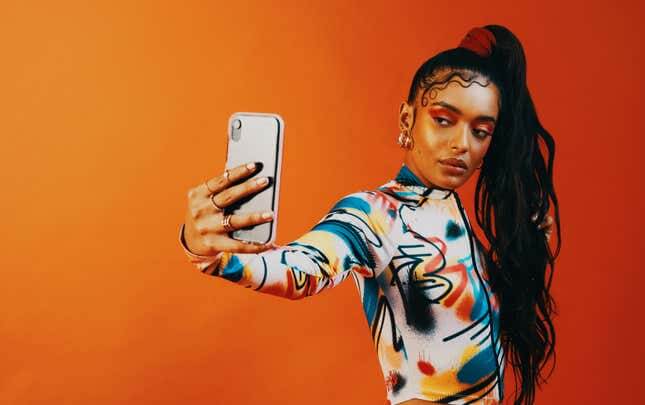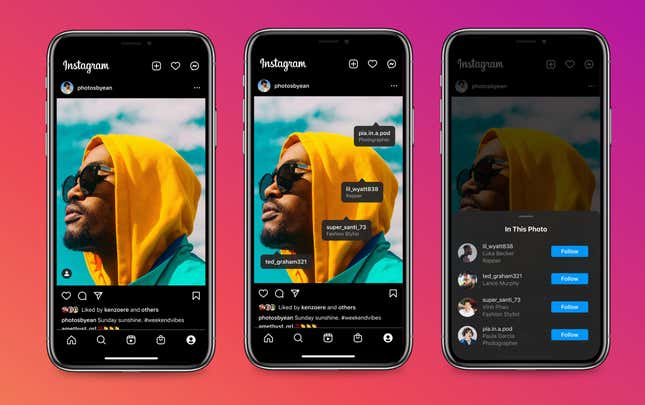Black Instagram Creators Want More Than Tags After Decades of Being Invisible
Instagram's announcement of enhanced tags earlier this month has Black influencers feeling skeptical about what sort of change this will create.
In Depth

If anyone knows how to go from making catchy videos in your living room one day to transforming into a viral sensation the next, it’s 19-year old Keara Wilson, 14-year old Jalaiah Harmon, and the Nae Nae twins. These Black creators are responsible for creating the immensely popular “Savage,” “Renegade,” and “Savage Remix” dances, respectively. So, why are the dances household names, but not the creators?
Since 2020, influencers like Wilson, Harmon, and the twins have garnered millions of views and shares for their culture-shifting moves. But, far too often, Black creators get the short end of the stick. They’re not acknowledged for their work and, as a result, lose out on potentially life-changing opportunities. And there’s data to back it up. A popular Instagram page titled the Influencer Pay Gap, alongside the Influencer League, collected wage data from influencers and content creators of all races to highlight the disparities; it found that white influencers make 29 percent more than their BIPOC counterparts.
Black Instagram and TikTok users have been vocal over the last few years about their dissatisfaction with both platforms’ lack of action in this vein. This July marks exactly a year since Black creators held a strike in response to the appropriation, lack of attribution, and wage gaps between creators of color and white creators that are rampant across these very platforms. After the strike, many users—myself included—noticed that social feeds were dry; the Black creators’ absence could be felt.
Finally, though, it seems that Instagram has heard Black creators loud and clear. This past month, three Black data analysts at Instagram, Alexis Michelle Adeji, Cameron Boyd, and Alexandra Zaoui, announced their recently designed feature called Enhanced Tags, which allows users to credit all contributors who had a hand in a project or creation. Made with Black creators in mind, the new tags let users properly identify collaborators for potential future opportunities, increasing access and visibility.
“People can easily credit their creative collaborator by including their self-identified profile category (e.g., make-up artist, choreographer, creative director, photographer, etc.) on their tag when tagged in a post,” Monique McKenzie, lead of the Beauty, Culture, and Lifestyle Communications team at Instagram, told Jezebel via email.
Or, at least that’s the hope.

In their research, Boyd, Adeji, and Zaoui discovered that more than 1.6 million people tag at least one brand on average each week, and that creators were (mostly) tagging creative collaborators in their captions and photos. But any casual user of the platform knows that didn’t easily translate to visibility. Before this tag, creative content—music, photography, poetry, skits, dances, and more—could be shared and re-shared without proper attribution. Users with bigger followings than the initial poster could repeat trends and subsequently land major deals or contracts, instead of the originator.
Any casual user of the platform can also tell you that it’s hard to keep track of who originated the skit, song, dance, art piece, or photo after it’s been repurposed, flipped, cropped, filtered, and changed millions of times over. Attribution is a key problem on nearly all social media sites, and the risk is greater for young Black creators who make up the majority of visual content on Instagram (and elsewhere).
Influencers like Ciara Johnson , Catherine Ochun, and Tyla Gilmore believe it’s crucial to be credited for their work, and the Enhanced tags could lead to a surplus of opportunities, connections, and even paid collaborations if their work reaches the right people.
-

-

-

-

-

-

-

-

-

-

-

-

-

-

-

-

-

-

-

-

-

-

-

-

-

-

-

-

-

-

-

-

-

-

-

-

-

-

-

-








































